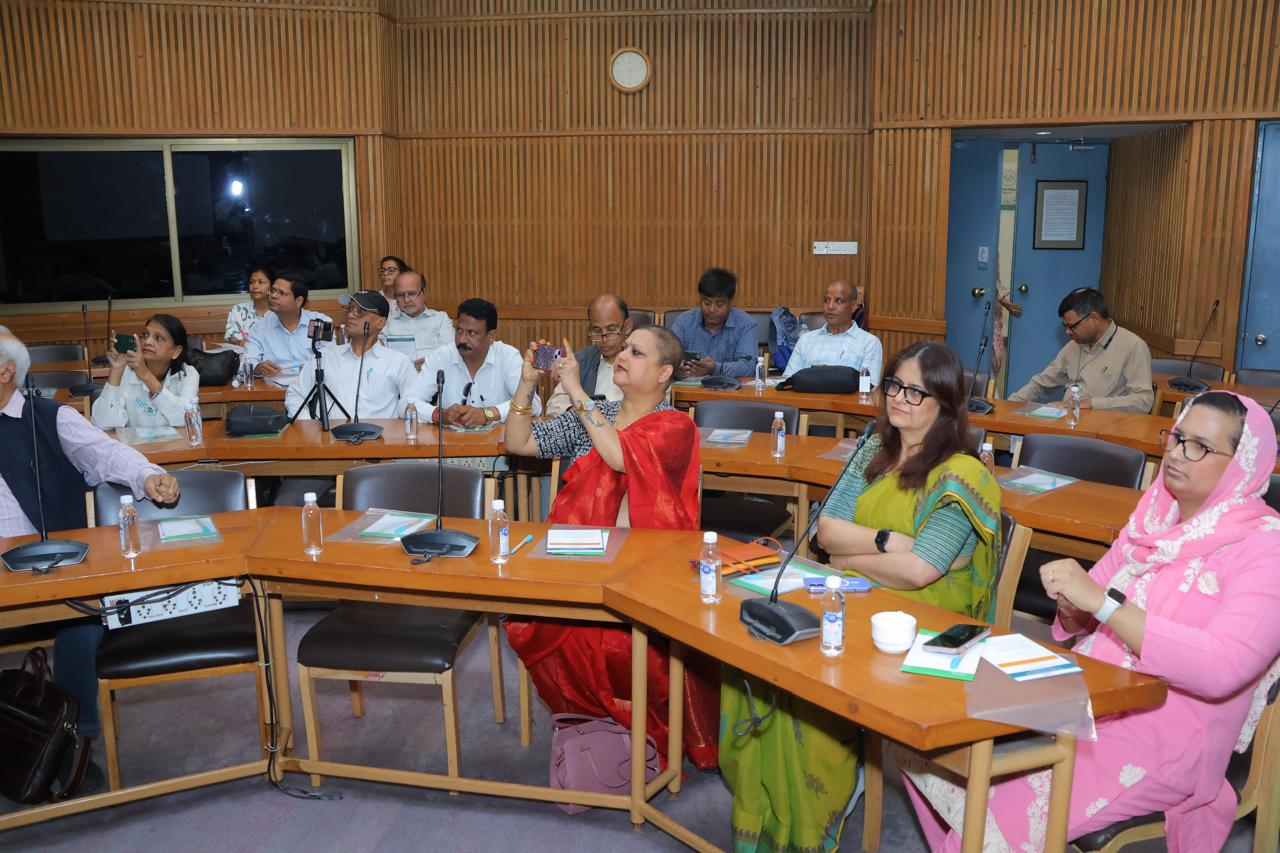Roundtable on Non-Communicable Diseases Bridging Science and Media
Delhi, India, April 5, 2025
Recognizing the increasing burden of non-communicable diseases (NCDs) and the pivotal role of media in improving understanding of public health, Resource Group for Education and Advocacy for Community Health (REACH) convened a high-impact media roundtable in collaboration with leading healthcare experts, journalists, and patient advocates. Held on 4th April 2025 at India International Centre, the event provided a platform for meaningful dialogue and a commitment by stakeholders including medical professionals, survivors with lived experiences and community leadership on how media can drive awareness and strengthen public engagement on NCDs.
The roundtable opened with a welcome address by Ms. Anupama Srinivasan, Deputy Director, REACH, highlighting REACH’s work with media to improve the quality and frequency of reporting on NCDs and tuberculosis, emphasizing the media’s responsibility in shaping public discourse and fostering informed communities. Highlighting how India has an enormous burden of non communicable diseases, she shared “The NCD response is relatively young and the informational gap must be bridged. REACH’s commitment is to provide an impetus to data-driven, evidence based reporting about NCDs”

In the first session, titled The NCD Landscape – A Practitioner’s Perspective, Dr. Beena Bansal, Senior Endocrinologist, Director-Founder, Door to Care, provided a comprehensive overview of the escalating NCD scenario in India, particularly in underserved populations. She highlighted the pressing need for early diagnosis, preventive healthcare, and stronger policy interventions. Stressing the media’s role as a crucial bridge, she remarked, “In today’s digital age, media is one of the most important avenues to center stage an issue, reaching the common people. Hence, non communicable diseases must become a media priority in order for it to reach policymakers. ”
Renowned Kathak expert and cancer survivor, Ms. Alaknanda Das shared a compelling personal account of living with an NCD, shedding light on the struggles of navigating healthcare systems and accessing essential treatment. Highlighting the importance of person-centered reporting that amplifies lived experiences and strengthens advocacy efforts, she shared, “I was incredibly lucky to be diagnosed during the initial stages, because I had the awareness and immediately visited a medical expert for diagnosis. However, most people lack awareness and in such a scenario, various media channels, particularly social media, become critical as a source of information.”
Dr. Aqsa Shaikh, Professor of Community Medicine, in the session titled Voices from the Margins – Health, Identity and Inclusive Reporting, addressed the intersection of healthcare access and marginalized identities. Emphasizing the necessity of ethical, inclusive storytelling, she said, “Media reporting must be driven by courage and curiosity. All information shared by the media must be authentic, with multi-layer verification, and lived experiences must be highlighted with compassion, vulnerability, and deep sensitivity.”
Dhananjay Kumar, Former Senior Editor, Navbharat Times & Member, HEAL (Health Education & Awareness League) Foundation, in the session titled, Media in Action – Lessons from the Frontline provided actionable insights on combating misinformation, improving accuracy in health journalism, and crafting compelling narratives. Encouraging journalists to adopt data-driven storytelling, and people-centric approaches to their reporting, he remarked, “In health reporting, especially around non-communicable diseases, addressing misinformation and disinformation is key. Accurate, verified information can guide better care, reduce stigma, and support informed choices.”
The session encouraged journalists to blend data with human stories for impactful, solution-oriented reporting. The roundtable saw enthusiastic participation from the media fraternity and medical experts, with over thirty attendees, including representatives from major publications such as PTI, Amar Ujala, and The Print, affirming the media’s commitment to spotlight the growing NCD burden and driving informed public discourse.
